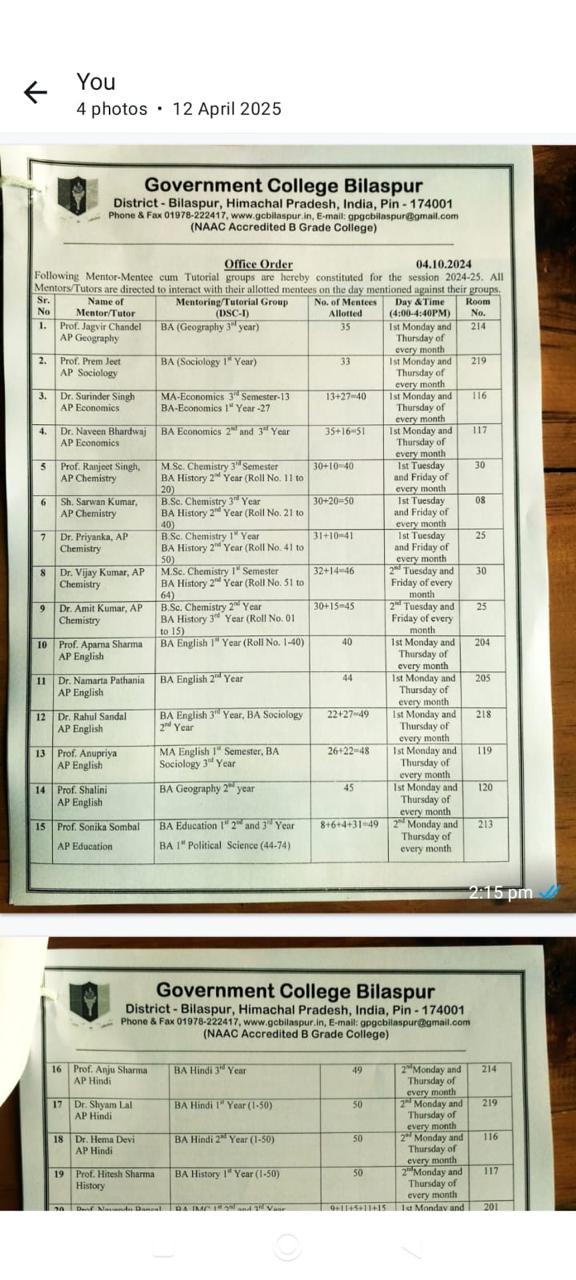



Best Practices
Government College Bilaspur has implemented a range of practices aimed at fostering a stress-free learning environment, recognizing the increasing correlation between academic pressure and student stress. In response to the emotional toll of today’s competitive education system, the institution has adopted a multi-pronged approach to promote student well-being. One of the key initiatives is the regular conduct of mentoring sessions, where students are encouraged to share academic and personal challenges with dedicated mentors in a supportive setting. Additionally, the college has entered into a Memorandum of Understanding (MoU) with the Heartfulness Education Trust, a public charitable organization focused on wellness through meditation and relaxation techniques. This collaboration introduces students to holistic practices that contribute to emotional resilience. Furthermore, the college has partnered with the “Gayatri Parivar” to establish a “Spiritual and Holistic Education” body, aimed at instilling moral and spiritual values that help regulate stress and promote inner strength. Collectively, these initiatives reflect the institution’s commitment to nurturing not only academic growth but also emotional and spiritual well-being.
Throughout the academic year, our college conducted regular department-wise cleanliness drives, resulting in a significantly cleaner and more sustainable campus environment. Each department took turns organizing and participating in these drives, ensuring that the responsibility of maintaining campus cleanliness was shared across the entire institution. These initiatives included clean-up sessions in and around department buildings, waste segregation workshops, and student-led awareness campaigns about the importance of waste management and environmental care. Additionally, special clean-up events were scheduled during key academic milestones and national cleanliness days, further fostering a culture of responsibility. The competition between departments not only led to well-maintained facilities but also instilled a sense of pride and accountability among students and staff. As a result, the cleanliness drives have become a cornerstone of our college’s commitment to sustainability and community well-being.
Distinctiveness
Upgradation of College Library into a Public Library
Turning college library into a public library has offered several significant benefits to both the institution and the community:
Local residents gain access to educational materials, fostering a culture of reading and continuous learning beyond formal education.
Libraries often have underused books, journals, and spaces. Opening them to the public ensures fuller use of existing resources.
It builds stronger ties between the college and the surrounding community, encouraging collaboration, goodwill, and mutual support.
School students, job seekers, and self-learners benefit from access to academic materials, reference books, and digital resources.
It helps bridge social and educational gaps, especially in areas with limited access to quality libraries or internet facilities.
Local researchers, writers, and professionals can benefit from scholarly journals, archives, and reference collections.
Being seen as a community resource center can enhance the college’s public image and attract partnerships or funding.
“Some students from outside the institution are currently making use of the public library facilities. Additionally, our fully digitized library system enables students to search for relevant books from the comfort of their homes. Orientation sessions are also conducted to help students learn how to use online resources effectively.”
